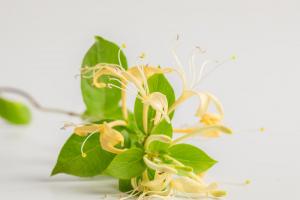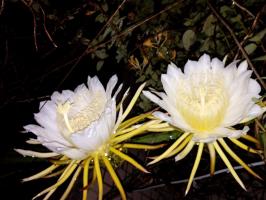What Kind of Water Do Pitcher Plants Thrive In
Pitcher plants are a unique group of plants that can be found in various parts of the world, particularly in bogs, swamps, and wetlands. These carnivorous plants are known for their distinct pitcher-shaped leaves that contain a liquid that serves as a trap for insects and other small prey. While pitcher plants are relatively easy to care for, it is crucial to understand the type of water they thrive in to ensure their optimal growth and development.
Rainwater is The Best Choice
Pitcher plants thrive best in water that is low in nutrients but high in acidity. Rainwater is particularly suitable for these plants as it is naturally low in minerals and other contaminants that can harm them. Additionally, rainwater has a low pH level, making it more acidic, which is essential for pitcher plants' growth. Using tap water or other types of water that contain high levels of minerals and chemicals, such as chlorine or fluoride, can lead to mineral buildup in the pitcher plants' soil, causing them harm in the long run.
Avoid Hard Water
Hard water is a type of water that contains a high level of dissolved minerals, such as calcium and magnesium. While hard water is suitable for humans, it is not ideal for pitcher plants. The minerals found in hard water can accumulate in the soil, leading to a buildup that can harm your pitcher plants. If you have no other option than to use hard water, you should consider adding acidic substances to help balance the soil's pH level.
Distilled Water is Another Option
If you cannot access rainwater, distilled water is another option that can be used for pitcher plants. The process of distillation removes almost all minerals and dissolved substances from water, making it ideal for pitcher plants that require low-nutrient water. However, distilled water tends to have a high pH level, making it less acidic than rainwater, which may not be suitable for some pitcher plant species. Thus, adding acidifiers may be necessary to reach the optimal pH level for your plants.
Conclusion
In conclusion, pitcher plants thrive in water that is low in nutrients and high in acidity. Rainwater is the best option for these plants, but distilled water can also be used if necessary. It is essential to avoid using hard water for pitcher plants as the minerals found in it can harm the plants in the long run. By understanding the type of water that your pitcher plants thrive in, you can provide them with optimal conditions for growth and development, ensuring that they remain healthy and vibrant in the long run.

 how many times do yo...
how many times do yo... how many planted tre...
how many planted tre... how many pine trees ...
how many pine trees ... how many pecan trees...
how many pecan trees... how many plants comp...
how many plants comp... how many plants can ...
how many plants can ... how many plants and ...
how many plants and ... how many pepper plan...
how many pepper plan...































